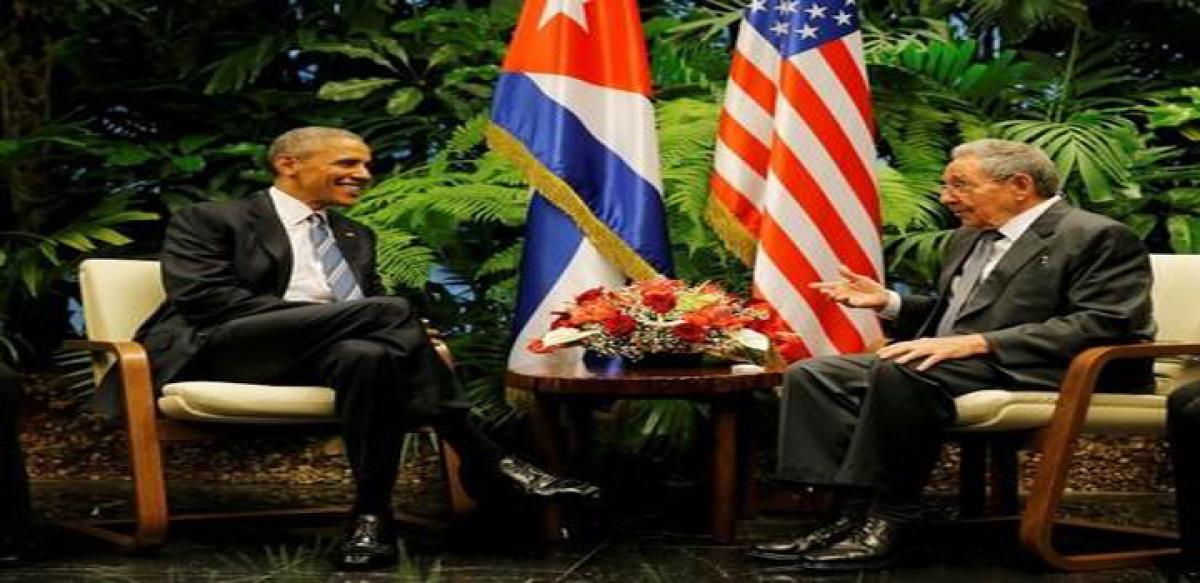Just In

US President Barack Obama was received by Cuban President Raul Castro in Havana on Monday at the start of historic talks where the US leader will press his counterpart for economic and democratic reforms while hearing complaints about US sanctions.
Havana: US President Barack Obama was received by Cuban President Raul Castro in Havana on Monday at the start of historic talks where the US leader will press his counterpart for economic and democratic reforms while hearing complaints about US sanctions.
Obama arrived in Cuba on Sunday on a trip that comes 15 months after he and Castro agreed to end five decades of Cold War-era animosity and work to normalize relations. On the first full day of his visit, he went to the heart of Cuba's Communist system, laying a wreath in Revolution Square at the memorial to independence hero Jose Marti.
He moved on to the nearby Palace of the Revolution, where Castro and his predecessor, older brother Fidel Castro, have led Cuba's resistance to US pressure going back decades. A US presidential visit to the inner sanctum of Cuban power would have been unthinkable before Obama and Raul Castro's rapprochement in December 2014.
Obama and Castro have met three times before, but Monday's meeting was set to be the most substantial. Obama and Raul Castro have deep differences to discuss as they attempt to rebuild the bilateral relationship. As Castro and Obama stood shoulder to shoulder before their talks, a military band played the Cuban anthem and then the US anthem. After the music, the two leaders walked past a military honor guard with fixed bayonets.
The formal ceremony contrasted with Obama's lower key arrival by Air Force One in Havana on Sunday. Castro did not meet the plane and there were no military honors. The US President is under pressure from critics at home to push Castro's government to allow dissent from political opponents and further open its Soviet-style command economy.

© 2024 Hyderabad Media House Limited/The Hans India. All rights reserved. Powered by hocalwire.com







